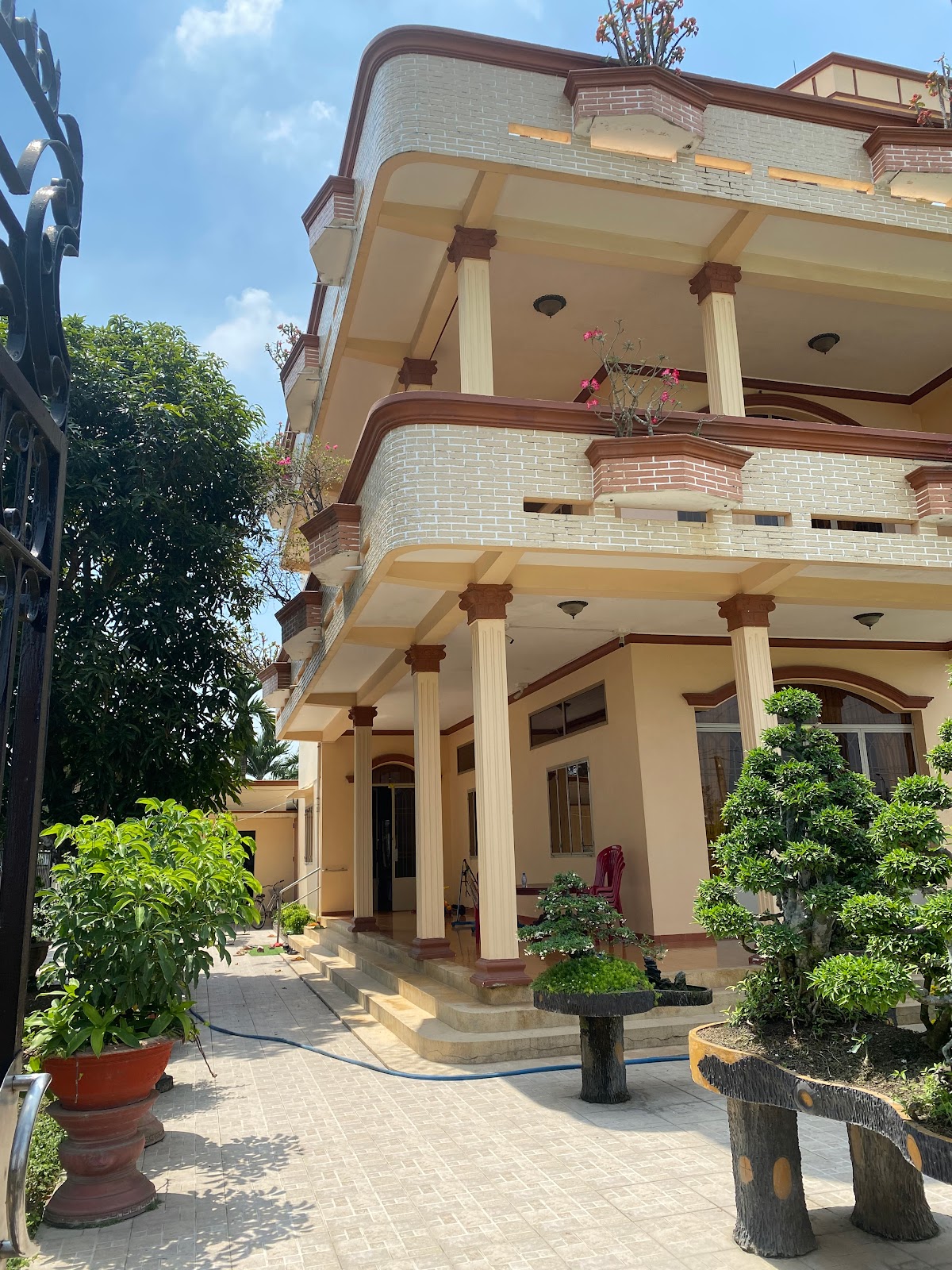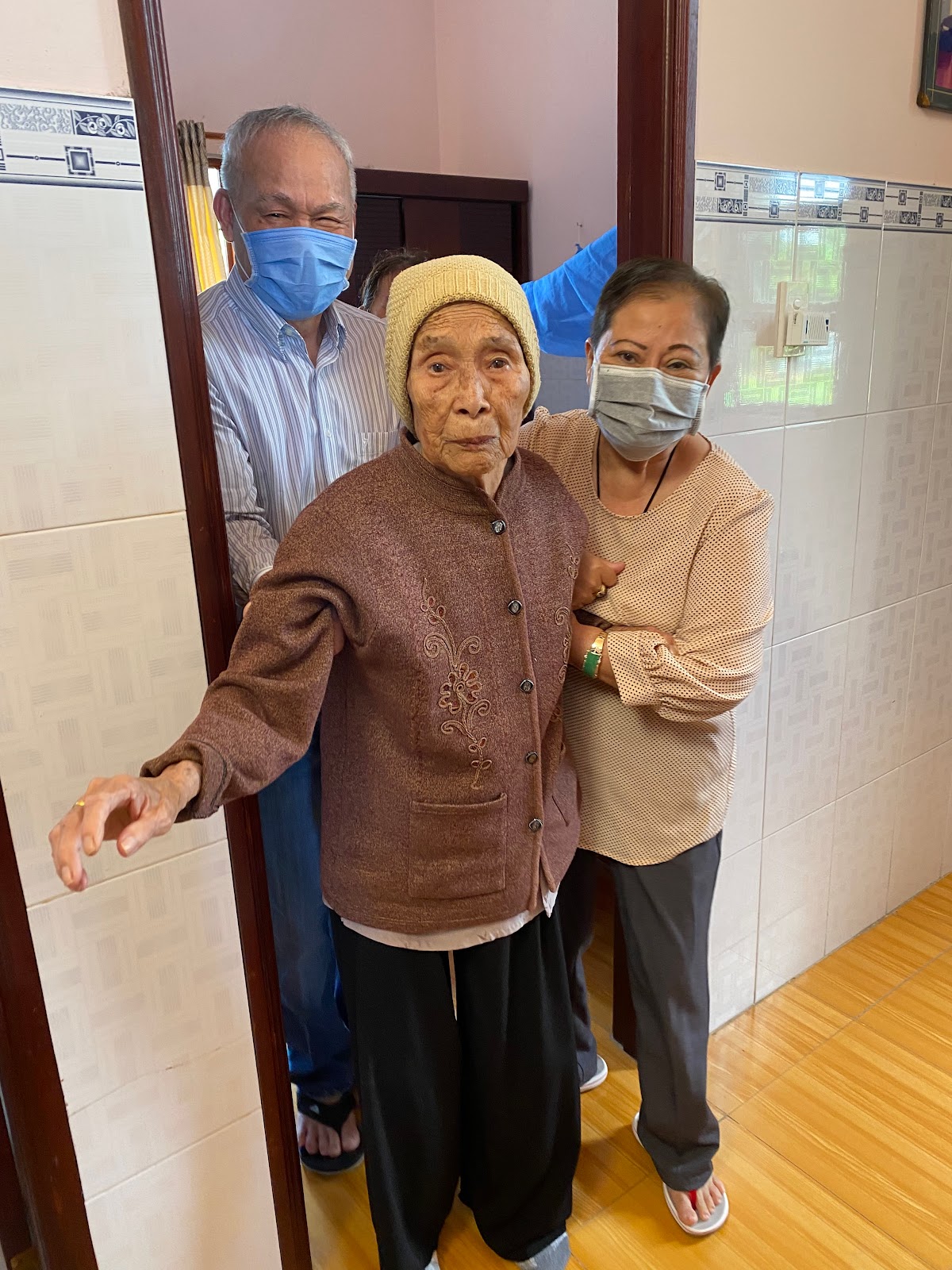In Vietnam, poor people sell lottery tickets to make money. They'll approach you--men, women, children, and grayed--with a thick stack of pink or red lottery tickets in their hand before sad eyes pleading that you purchase one from them. They don't linger, they hunt. Their pestilence and insistence puts JW's and LDS elders to shame. You get used to politely declining at least half a dozen times a day at any given location: be it inside the coffee shop, at the local cafe eating soup, or even inside the gates of the Buddhist pagoda. But in my book, they crossed line.
At late morning, T and I arrived to the street of the memorial on our scooter 🛵, the background pebbled with mourning figures of black and white towered over by at least two dozen flower arrangements. As we approached, the figures on the left of the street grew faces with tears, all huddled together in warm embraces, some with comforting smiles, some with gentle pats on the back, all with shoulder length hair or longer; The women. On the right side of the street, the men sat together on short, round, metal chairs at short, round, metal tables as they exchanged only a few words every half minute, and mostly gazed down at their beverages. A few folks wearing aprons walked swiftly under a tent as they alternated between squatting down to cook food on the stove, and ushering more food to be cooked from inside the home across the street behind the women. The cooks squeezed through a tight passage to the right and behind an elaborate altar that entirely filled the entrance of the home. Beautifully ornate details of gold and red surrounding a passport-like photo of a handsome man with black hair, thin lips, and bold black brows. Underscoring his photo was an LED banner of a blinking tulip with an oriental border that blinked and shone like a Las Vegas Strip. Behind it and extending further into the home, a dark wood coffin, edged with hand-carved and nature-inspired details presumably housed the gentleman in the passport-like photo; the gentleman who inspired the tears, the food, the gazes, and the gathering.
In the foreground of the coffin and at the mere entrance of the home welcomed the main portion of the altar with already two dozen incense burning in a clay bowl, flowers and fruit neatly displayed at its sides. At the entrance of the aforementioned passage into the home at the right of the alter stood a tall, baby-faced young man, no older than twenty-five; his features undeniably favored the passport-photo gentleman, save his eyes. His eyes were rather tired, heavy, swollen and red. His cheeks also reddened from rubbing friction; The eldest son, adorned in a humble white shroud with a white cloth fastened upon his head. He maintained his palms together at his chest, offering a gentle bow to every guest who would approach the altar. It is customary for attendees to approach the altar, upon which the eldest son will hand them two incense. The first incense is reserved for Buddha, the second is reserved for the one being honored. After offering greetings and exchanging smiles and kind words with other attendees, T and I took our turn in this custom. We watched two other cousins perform the offering before we took our steps up. I removed my shoes before the rug of the altar, the son proceeded to hand me my two designated incenses. I first faced the Buddha altar to the west of the altar, lifted both incense to eye level, and offered three bows, focusing that my bows not be too exaggerated nor too careless. After all, as a foreigner there would be many extra sets of eyes on me at my offering. I carefully placed my first incense in the Buddha statue bowl among the others, avoiding burning my hand on any other embers. I then faced the coffin and its altar. In this case, trying to center my thoughts on the passport-photo gentleman as I took my three bows. "I never met you, I don't even know how to correctly pronounce your name, but your family seems to love you a whole lot, and I've heard you were a good man. I wish you a peaceful afterlife," and I finished my final bow. I placed the incense in the clay bowl and offered one more subtle bow as I'd seen the other cousins do before I stepped away from the altar and replaced my shoes on my feet. I sat again with the women, at the short, round, metal table with the short, round, metal chairs. The tabletop offered assorted fruit, including grapes, as well as some nuts and tea. Small bottled waters also assigned at each chair. A cousin offered me to drink my water as she drank her own. More warm greetings and kind words exchanged, especially between the mother of the passport-photo gentleman. She looked tired and relieved (as her son had been suffering the cancer for some time), yet she maintained an air of elegance and beauty that warmed the already pretty hot day.
Then, SHE approached--the lottery ticket lady. She insisted eye contact with every individual at every short, round, metal table, reluctant to leave until she gathered up all the "No, thank-you's" she could obtain. Why? Why did she have to approach with such disregard for this obviously sensitive moment, sensitive event, sensitive day? Where is the consideration? Where is the decency? I was indignant. I thought about it for several hours after the event. Eventually I had my husband ask Aunt General (see previous Vietnam blog posts) if this was acceptable of the lottery ticket lady. She basically shrugged and said "It is what it is."
Cultural differences are wild, man.





















